Table of Contents
Daily Current Affairs for Government Exams:
Today Current Affairs: 4th June 2020 for UPSC IAS exams, State PSC exams, SSC CGL, State SSC, RRB, Railways, Banking Exam & IBPS, etc
Contents:
- Pharmacopoeia Commission for Indian Medicine & Homoeopathy (PCIM&H):
- Amendments to the Essential Commodities Act (1955):
- Petition on nation’s name:
- Kolkata Port as Syama Prasad Mookerjee Port.:
- Empowered Group of Secretaries (EGoS) and Project Development Cells (PDCs):
- Other important current affairs
1.Pharmacopoeia Commission for Indian Medicine & Homoeopathy (PCIM&H):

Union Cabinet has given its approval to re-establish Pharmacopoeia Commission for Indian Medicine & Homoeopathy (PCIM&H) as Subordinate Office under the Ministry of AYUSH.
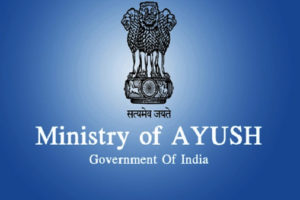
- This is being done by merging into it the Pharmacopoeia Laboratory for Indian Medicine (PLIM) and Homoeopathic Pharmacopoeia Laboratory (HPL) – the two central laboratories established at Ghaziabad, Uttar Pradesh since 1975.
- Presently, the Pharmacopoeia Commission for Indian Medicine & Homoeopathy (PCIM&H) is an autonomous body under the aegis of Ministry of AYUSH established since 2010.
- The merger is aimed at optimising the use of resources of the three organizations for enhancing the standardisation outcomes of Ayurveda, Siddha, Unani and Homoeopathy drugs towards their effective regulation and quality control.
- It is also intended to accord legal status to the merged structure of PCIM&H and its laboratory by virtue of making amendments in the Drugs & Cosmetics Rules, 1945.
2.Amendments to the Essential Commodities Act (1955):
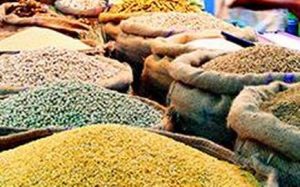
Recently, the Cabinet has approved a proposal to promulgate three separate ordinances to push agriculture marketing and commodities trade reforms in the country.
- These reforms are part of the third tranche of the economic package announced under Atmanirbhar Bharat Abhiyan to counter Covid-19 pandemic.
- These ordinances are expected to give effect to the amendments proposed to the Essential Commodities Act and bring in two new Central laws on inter-state trading and engagement of the farmers with processors, exports, etc.
Amendments to the Essential Commodities Act (1955)
- India has become a surplus in most agri-commodities but farmers have been unable to get better prices due to lack of investment in cold storage, processing and export.
- The imposition of the curbs on stocking of farm produce and regulation of the prices of commodities, etc. under Essential Commodities Act (ECA) are some of the factors responsible for less entrepreneurial spirit and thus less investment in the farm sector.
- The amendment would deregulate the commodities such as cereals, edible oils, oilseeds, pulses, onions and potatoes.
- It will help to lessen the fears of private investors of excessive regulatory interference in their business operations.
- Any limits under ECA over these commodities will be imposed only in exceptional circumstances such as war, famine, extraordinary price rise and natural calamity.
- The freedom to produce, hold, move, distribute and supply will lead to harnessing economies of scale and attract private sector/foreign direct investment into the agriculture sector.
- It will help drive up investment in cold storages and modernization of the food supply chain.
Currently, there are restrictions for farmers in selling agri-produce outside the notified Agricultural Produce Market Committee (APMC).
- The farmers are also restricted to sell the product only to registered licensees of the State Governments.
- Further, barriers exist in the free flow of agriculture produce between various States owing to the prevalence of various APMC legislation enacted by the State Governments.
Farmers (Empowerment and Protection) Agreement on Price Assurance and Farm Services Ordinance, 2020
- Indian Agriculture is characterized by fragmentation due to smallholding sizes and has certain weaknesses such as weather dependence, production uncertainties and market unpredictability.
- It makes agriculture risky and inefficient in respect of both input & output management.
3.Petition on nation’s name:
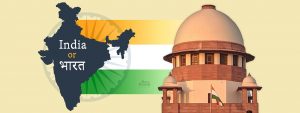
A petition was filed which said, ‘India’ is a name of foreign origin. The name can be traced back to the Greek term ‘Indica’.
- The petition seeks an amendment to Article 1 of the Constitution, which says “India, that is Bharat, shall be a Union of States”.
- It wants ‘India’ to be struck off from the Article. This is to ensure citizens of this country to get over the colonial past and instil a sense of pride in our nationality.
- And it will also justify the hard-fought freedom by our freedom fighters.
- The Supreme Court has ordered that a plea to change India’s name exclusively to ‘Bharat’ be converted into a representation and forwarded to the Union government for an appropriate decision.
- The Court said, “Bharat and India are both names given in the Constitution. India is already called ‘Bharat’ in the Constitution”.
- The constituent assembly debated Article 1 of the then draft constitution prepared under the chairmanship of BR Ambedkar.
- It was a heated debate that saw sharp exchanges among the members on November 18, 1949 – just eight days before the Constitution was adopted by “We, the people”.
- HV Kamath objected to the Ambedkar committee’s draft that had two names – India and Bharat.
- He proposed amendments to Article 1 putting Bharat or alternatively Hind as the primary name for the country and pronouncing India only as of the name in the English language.
- Seth Govind Das said, “India, that is, Bharat” are not beautiful words for the name of a country. We should have put the words “Bharat known as India also in foreign countries.”
- Das cited the Vedas, the Mahabharat, couple of Puranas and the writings of Chinese traveller Hiuen-Tsang to say that Bharat was the original name of the country, hence India should not be put as the primary name in the constitution post-independence.
- He also invoked Mahatma Gandhi saying that the country fought the battle of freedom raising the slogan of “Bharat Mata Ki Jai” asserting that Bharat could be the only plausible name for the country.
The constitution says:
- As per Article 1 in the Constitution, the territory of India shall consist of: The territories of the states, The Union territories and Any territory that may be acquired.
- The names of the States and the Unions have been described in the First Schedule. This schedule also held that there were four Categories of State and territories – Part A, Part B, Part C and Part D.
- In the seventh amendment of the Constitution in 1956, the distinction between Part A and Part B states was abolished. Subsequently, states were reorganized on a linguistic basis.
4.Kolkata Port as Syama Prasad Mookerjee Port.:
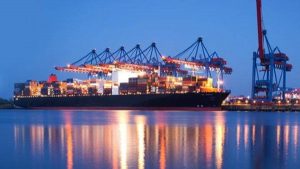
The Union Cabinet has given its approval to rename Kolkata Port as Syama Prasad Mookerjee Port.
- The Kolkata Port is the first Major Port as well as the only riverine port of the country.
- It came to be governed by a Trust in 1870 on the appointment of the Commissioners for Improvement of the Port of Calcutta as per Act V of 1870.
- It features at Serial Number 1 in The First Schedule, Part I—Major Ports of the Indian Ports Act, 1908 and is governed by the Major Port Trusts Act, 1963.
Syama Prasad Mukherjee:
- Syama Prasad Mukherjee (1901 – 1953) was an Indian politician, barrister and academician.
- He served as the Minister for Industry and Supply in Prime Minister Jawaharlal Nehru’s cabinet.
- He quit the Union Government because of differences of opinion with the Nehru-led government and founded the Bharatiya Jana Sangh, the predecessor to the Bharatiya Janata Party, in 1951.
- Nhava Sheva Port Trust was renamed as Jawaharlal Nehru Port Trust by the Government in the year 1989.
- The Tuticorin Port Trust was renamed as O. Chidambaranar Port Trust in the year 2011.
- The Ennore Port Limited has been re-named as Kamarajar Port Limited in the honour of K Kamarajar, eminent freedom fighter and former Chief Minister of Tamil Nadu.
- In 2017 Kandla Port was re-named as Deendayal Port.
5.Empowered Group of Secretaries (EGoS) and Project Development Cells (PDCs):
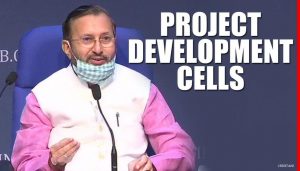
The Union Cabinet has given its approval for setting up of an “Empowered Group of Secretaries (EGoS) and Project Development Cells (PDCs) in Ministries/Departments of Government of India for attracting investments in India”.
Empowered Group of Secretaries (EGoS)
- The objective of EGoS: To provide investment support to global investors by bringing synergies and ensure timely clearances from different departments and Ministries.
- Composition of EGoS:
- Cabinet Secretary (Chairperson);
- Secretary, Department for Promotion of Industry and Internal Trade (Member Convenor)
- CEO, Niti Aayog (Member); Secretary, Department of Commerce (Member), Secretary, Department of Revenue (Member), Secretary, Department of Economic Affairs (Member); Secretary of Department concerned (to be co-opted).
Project Development Cell (PDC)
- A ‘Project Development Cell’ (PDC) is also approved for the development of investible projects in coordination between the Central Government and State Governments and thereby grow the pipeline of investible projects in India and in turn increase FDI inflows.
- Under the guidance of the Secretary, an officer not below the rank of Joint Secretary of each relevant central line Ministry, who will be in charge of the PDC will be tasked to conceptualize, implement, and disseminate details with respect to investable projects.
Other important current affairs:
1. The Union Cabinet has given its approval for signing the MoU between the Government of India and Bhutan on Cooperation in the areas of Environment.
- The MoU will cover the following areas of the environment: (1) Air; (2) Waste; (3) Chemical Management; (4) Climate Change; and () Any other areas jointly decided upon.
- This MoU shall enter into force on the date of signature and shall continue to remain in force for a period of ten years.
- It will facilitate the exchange of best practices and technical know-how through both public and private sectors and shall contribute to sustainable development. It provides the possibility for joint projects in areas of mutual interest. However, no significant employment generation is envisaged.
2. The government has approved new guidelines to boost infrastructure in areas along the China border.
- Spend 10% of funds of a Centrally sponsored scheme only on projects in Ladakh, Arunachal Pradesh, Himachal Pradesh, Uttarakhand and Sikkim.
- The Border Area Development Programme (BADP) has been allocated ₹784 crores in 2020-21 fiscal and the money is distributed to the border States and Union Territories depending on various criteria such as the length of the international border and population.
- Projects for developing strategically important villages and towns in border areas that have been identified by the border guarding forces will be given priority.
- Construction of roads, bridges, culverts, primary schools, health infrastructure, playfields, irrigation works, mini-stadiums, indoor courts for basketball, badminton and table tennis can be undertaken within 10 km of the border.
3. Recently, a Tropical Cyclone named Cristobal has formed in the southern Gulf of Mexico. Tropical cyclones in the North Atlantic are called hurricanes, tropical storms, or tropical depressions.
- The Atlantic hurricane season is the period in a year when hurricanes usually form in the Atlantic Ocean.
- In the Northern Atlantic Ocean, a distinct hurricane season occurs from June 1 to November 30, sharply peaking from late August through September.
- Worldwide, tropical cyclone activity peaks in late summer, when the difference between temperatures is large and sea surface temperatures is the greatest.
4. Union Government has launched a new initiative SWADES (Skilled Workers Arrival Database for Employment Support) to conduct a skill mapping exercise of the returning citizens under the Vande Bharat Mission.
- This is a joint initiative of the Ministry of Skill Development and Entrepreneurship, Civil Aviation Ministry and External Affairs Ministry.
- SWADES aims to create a database of qualified citizens based on their skillsets and experience to tap into and fulfil the demand of Indian and foreign companies.
- The collected information will be shared with the companies for suitable placement opportunities in the country.
- The returning citizens are required to fill up an online SWADES Skills Card. The data collected through SWADES Skill Card will help the citizens with job prospects and bridge the demand-supply gap.
5. The International Day of Innocent Children Victims of Aggression is being observed on 4 June.
- The International Day of Innocent Children Victims of Aggression is annually observed by the United Nations on 4 June.
- It was established in 1982 in the background of victims of the 1982 Lebanon War.
- The purpose of the day is to acknowledge the pain suffered by children throughout the world who are the victims of physical, mental and emotional abuse. This day affirms the UN’s commitment to protecting the rights of children.
- Its work is guided by the Convention on the Rights of the Child, the most rapidly and widely ratified international human rights treaty in history.
6. The government of the Philippines has suspended plans to cancel the Visiting Forces Agreement (VFA), a deal that is important to Washington’s moves to counter Beijing’s rising regional power.
- On February 11, the Philippines officially sent a notice terminating the VFA to the United States through its embassy in Manila.
- Political analysts interpreted the reversal as a sign that China’s neighbours are worried about its growing military assertiveness. The Philippines, Vietnam and Malaysia all have disputes with China about its territorial claims in the South China Sea.
- A visiting forces agreement (VFA) is an agreement between a country and a foreign nation having military forces visiting in that country.
- VFA spells out the rules, guidelines and legal status of the U.S. military when operating in the Philippines.
- The VFA also affirms the 1951 Mutual Defense Treaty as well as the 2014 Enhanced Defense Cooperation Agreement — agreements that enable the U.S. military to conduct joint exercises and operations in the Philippines.
- The Philippine Senate ratified the VFA in 1999.
7. To foster the inclusion of LGBTQAI+ employees, Mahindra Logistics Ltd. (MLL) has unveiled a five-year plan which aims at hiring queer people and extending benefits to same-sex partners.
- The policy includes adoption leave for queer workers.
- Same-sex partners shall be eligible for 12-week adoption leave, starting from the date of the adoption.
- Benefits under the existing medical insurance shall be extended to same-sex partners on the declaration of their partner’s details.
- The company’s definition of compassionate leave — which can be availed for four days by an employee in case of death of an immediate family member — will be extended to same-sex partners.
- To make the workplace inclusive for queer employees, MLL will offer LGBTQAI+ staff counselling services on request, for them and three immediate family members, which includes their partner.
- There will be an equal opportunity and non-discrimination in various processes, including recruitment, transfer, relocation, training and development, and promotion.
- Any incident of sexual harassment reported by a queer employee shall be investigated by the internal complaints committee.
- The company also seeks to bridge the gender diversity gap by hiring more women and aims to hire more persons with disabilities.
7. India is prepared to expand the Malabar exercise to also include Australia.
- India and Australia are soon to be holding a virtual summit for better cooperation and strengthening bilateral ties.
- It is an annual trilateral naval exercise between the navies of India, Japan, and the USA which is held alternately in the Indian and Pacific Oceans.
- It began as a bilateral naval exercise between India and the USA in 1992 and was expanded into a trilateral format with the inclusion of Japan in 2015.
- Other exercises between India and Australia are Pitch Black and AUSINDEX.
8. The AIS is one of the largest glacier drainage basins in the world, located on the east coast of Antarctica, at about 70ºS Latitude, 70ºE Longitude.
- It is located at the head of Prydz Bay between the Lars Christensen Coast and Ingrid Christensen Coast.
- It is part of Mac. Robertson Land.
- The National Centre for Polar and Ocean Research (NCPOR) predicts that there would be a 24% increase in the expansion of Ameri Ice Shelf (AIS) boundaries by 2021 and another 24% expansion by 2026 from its 2016 positions.
- Scientists feel that this study would help understand the ongoing changes in the ocean and atmospheric forces better
9. Rajasthan has topped the list of Covid-19 Management Index which was analysed for 10 states by the Central government, including parameters such as active cases, recovered cases and mortality rate.
- The positive cases in the state are heading towards the 10,000-mark but the graph of active cases has been constantly declining.
- There were only 2,699 active cases in the state as of now. The mortality rate was 2.16%, which was quite less than the national average and the recovery rate was 67.59%.
- While the doubling time of Covid-19 infection in India is 12 days, it stands at 18 days in Rajasthan.
- Despite the return of migrants in huge numbers, the infection had not spread widely in the rural areas because of micro-planning at the village and subdivision levels.




